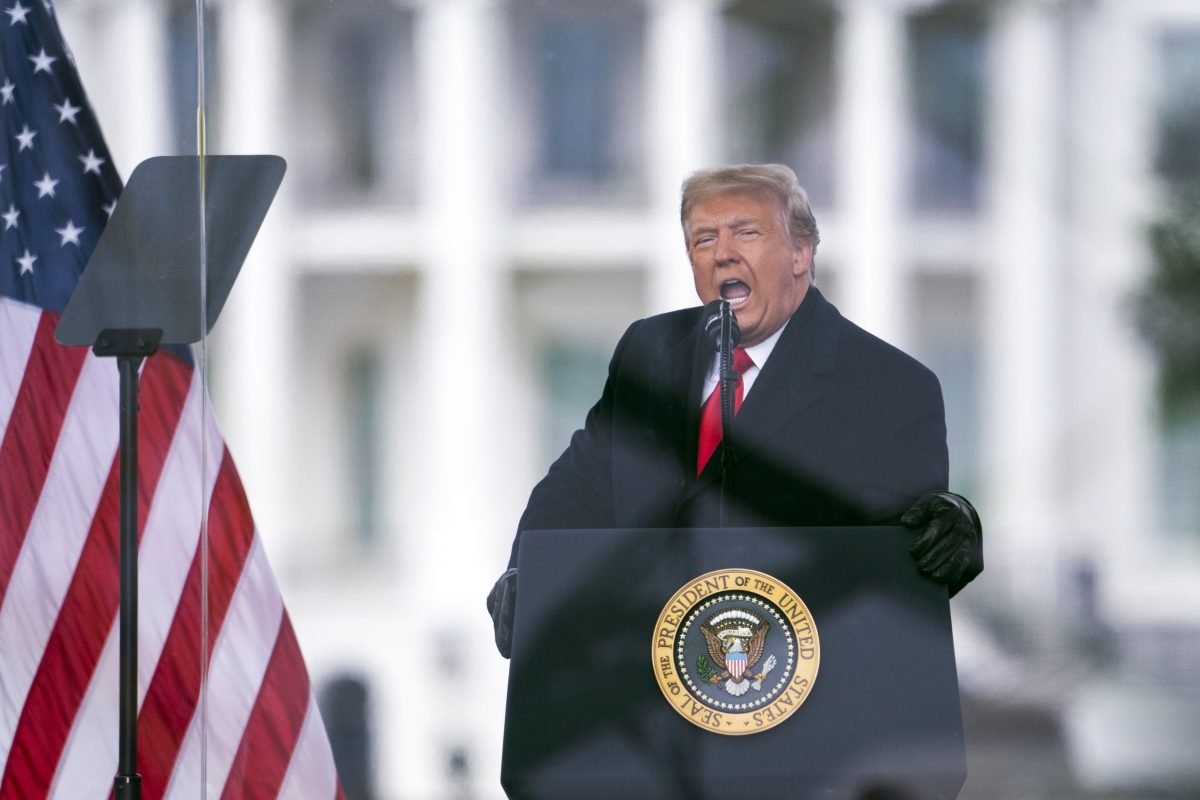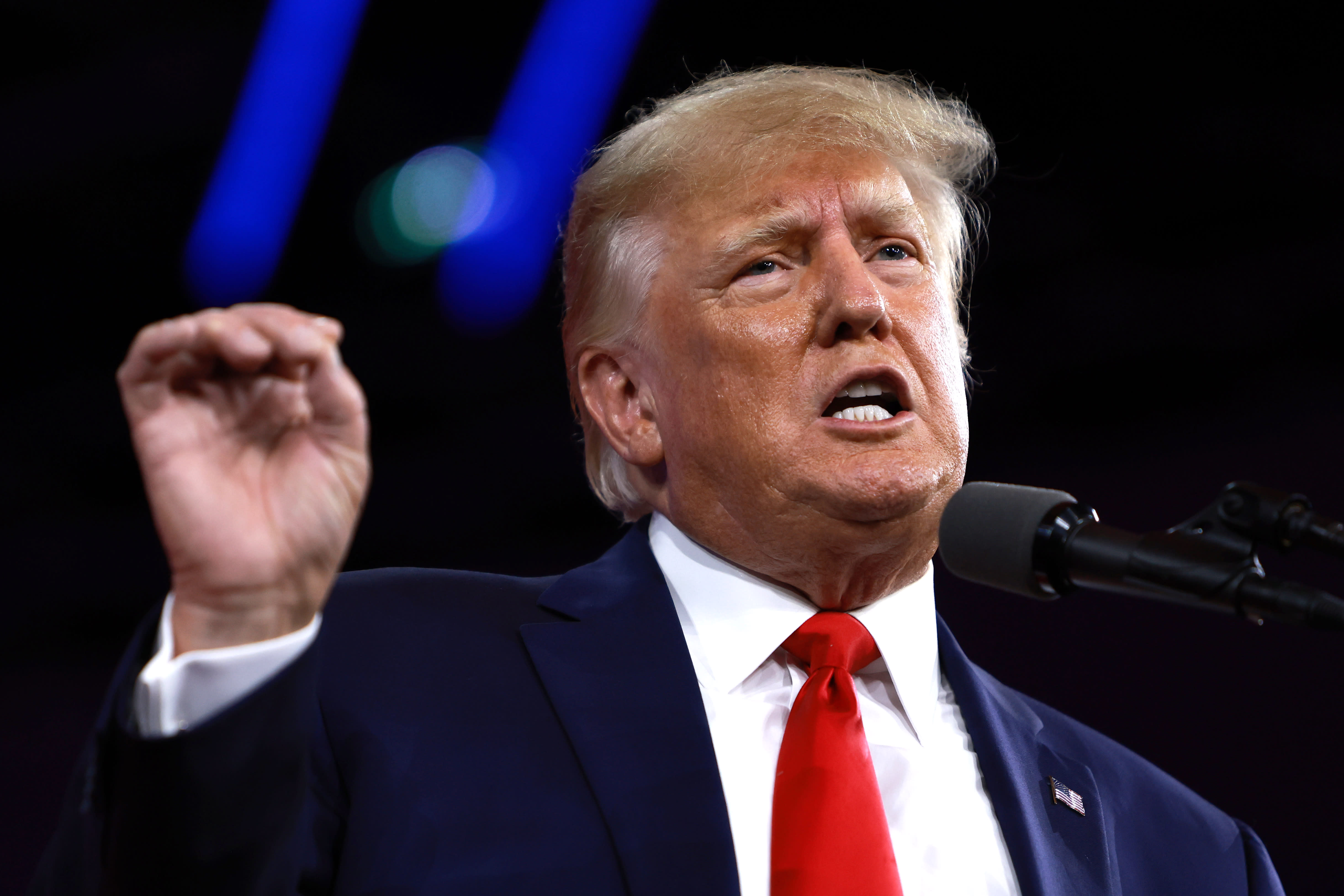House Republican leader Kevin McCarthy told fellow GOP lawmakers shortly after the Jan. 6, 2021, Capitol insurrection that he would urge then-President Donald Trump to resign, according to audio posted Thursday night by The New York Times and aired on Rachel Maddow's MSNBC show.
In the recording of a Jan. 10 House Republican Leadership call, McCarthy is heard discussing the Democratic effort to remove Trump from office and saying he would tell Trump, “I think it will pass and it would be my recommendation he should resign."
Earlier Thursday, after the Times published its initial story describing the conversation, McCarthy released a statement calling it “totally false and wrong.” His spokesman, Mark Bednar, had told the paper, “McCarthy never said he’d call Trump to say he should resign.”
Get top local stories in DFW delivered to you every morning. >Sign up for NBC DFW's News Headlines newsletter.
Bednar did not immediately respond to questions late Thursday night after the audio's release. Representatives for Trump did not immediately respond to requests for comment on the tape.
The audio threatens to badly damage the relationship between McCarthy and Trump, who remains the most popular figure in the Republican Party, despite his role in inciting the Jan. 6 insurrection and his refusal to accept the results of the 2020 election. And it could threaten McCarthy's standing with House Republicans and his hopes of becoming speaker next year.
The audio depicts a very different McCarthy than the one who has been ruling over House Republicans over the last year and a half and who has remained allied with Trump even after delivering a speech on the House floor shortly after Jan. 6, during which he told his caucus that Trump “bears responsibility” for the violence.
Since the attack, the California Republican has continued to distance himself from any criticism of Trump and has avoided directly linking him to what happened. Instead, McCarthy has cozied up to Trump, visiting him at the former president’s Florida residence at Mar-a-Lago.
More Capitol Riots Coverage
The Times report Thursday was adapted from an upcoming book, “ This Will Not Pass: Trump, Biden and the Battle for America’s Future,” by Times reporters Jonathan Martin and Alexander Burns.
In the audio, Wyoming Rep. Liz Cheney, who lost her No. 3 leadership position after voting in favor of Trump's impeachment, can be heard asking McCarthy about a 25th Amendment resolution calling for Trump’s ouster and whether Trump might resign.
“I’ve had a few discussions. My gut tells me no. I’m seriously thinking of having that conversation with him tonight,” McCarthy is heard saying. “What I think I’m gonna do is I’m gonna call him.”
“I think it will pass and it would be my recommendation he should resign," he later adds. “I mean, that would be my take but I don’t think he would take it. But I don’t know.”
McCarthy, 57, has been strategically charting his own delicate course as he positions himself to try to take over as speaker if Republicans retake the House in this year's midterm elections. McCarthy has begun to build out his leadership team and last summer tasked several groups of Republican lawmakers with drafting proposals on the party’s core legislative priorities in hopes of making a fast start in 2023.
But even as he inches closer to leading the chamber, McCarthy has gotten a taste of the downside of power in recent months as hard-right members of the conference have created headaches with inflammatory actions and statements.
In an interview this week in California, McCarthy indicated he is still depending on Trump to turn out voters this fall, even as he charts a distinct course for his party trying to retake the House majority.
“He’ll motivate, get a lot of people out,” McCarthy told The Associated Press at a GOP event in Fresno.
There was little immediate reaction Thursday night from fellow Republicans who could determine his future.
McCarthy has also been a person of interest for the House committee investigating the storming of the Capitol on Jan 6. The select committee, which Cheney vice-chairs, requested an interview with McCarthy in mid-January, hoping to learn more about his conversations with Trump “before, during and after” the riot.
They had also sought information about McCarthy’s communications with former White House chief of staff Mark Meadows in the days before the attack. Hours after the request was made, McCarthy issued a statement saying he would refuse to cooperate because he saw the investigation as not legitimate and accused the panel of “abuse of power.”
The committee has been especially focused on McCarthy’s communications with Trump and White House staff in the week after the violence, including a conversation with Trump that was reportedly heated.
Without his cooperation, it remains unclear whether the panel will be able to gain testimony from McCarthy or any other congressional allies of Trump. While the committee has considered subpoenaing fellow lawmakers, they have so far avoided doing so as it would be an extraordinary move and could run up against legal and political challenges.



